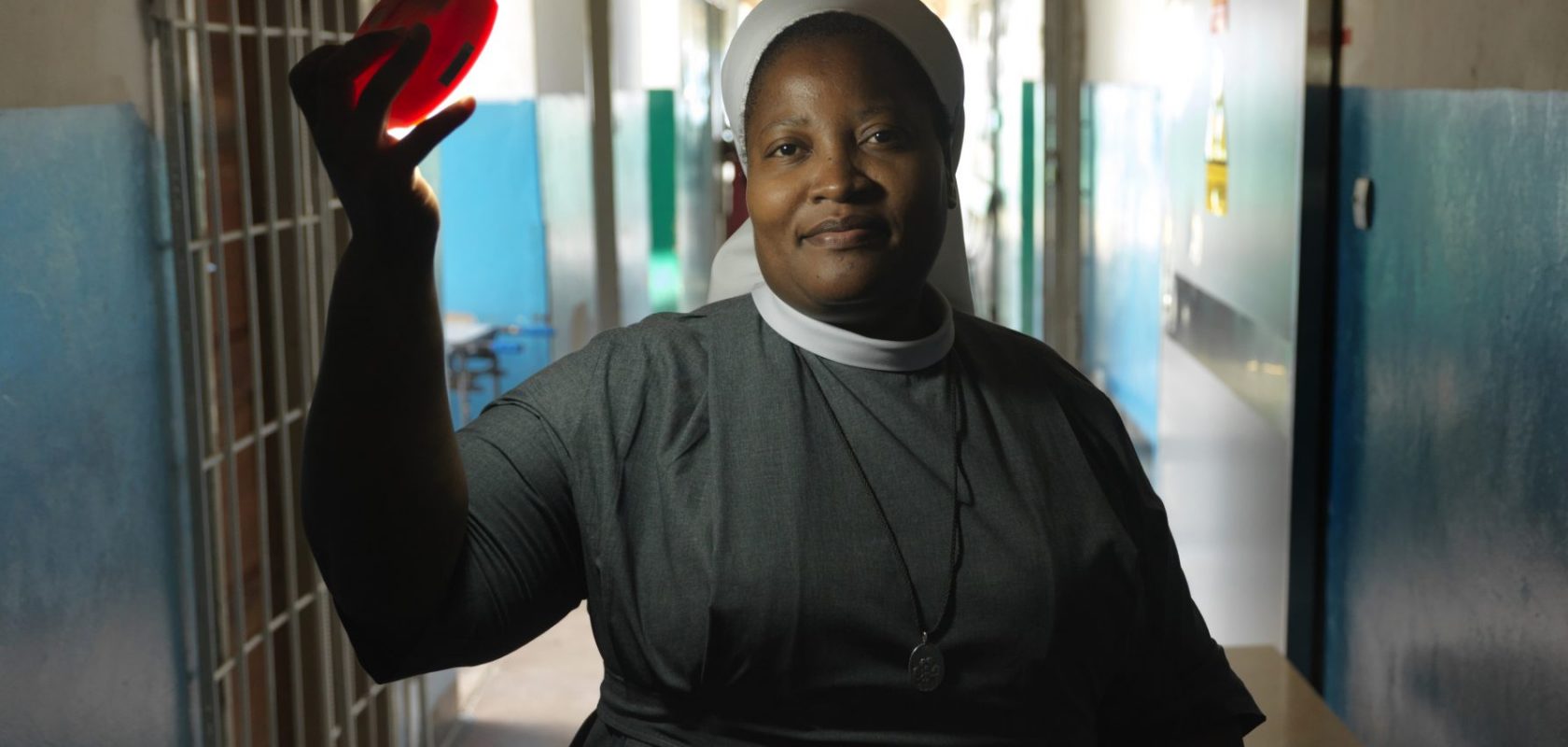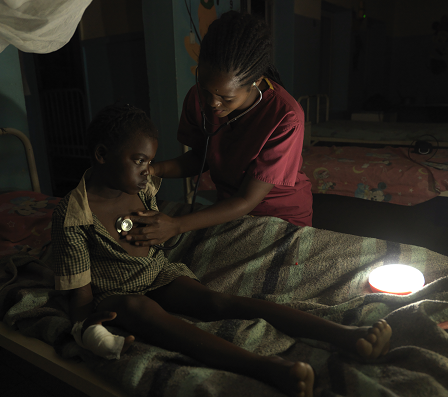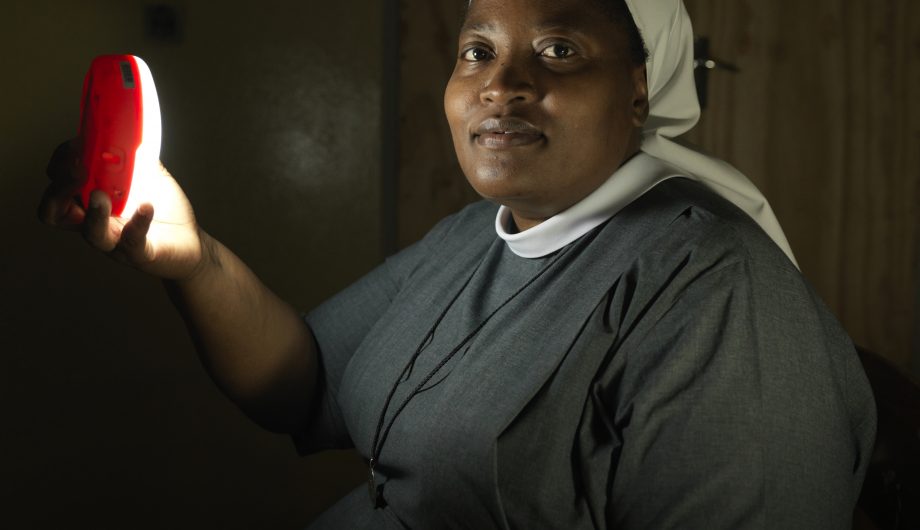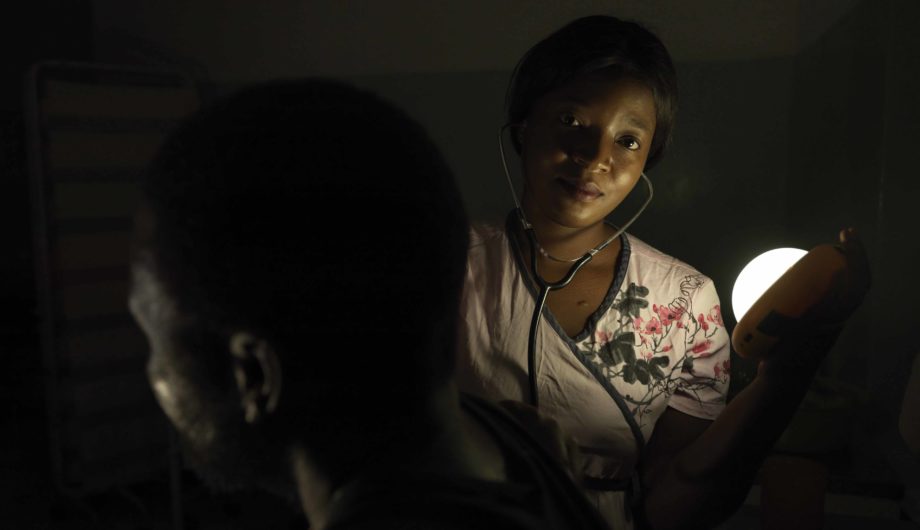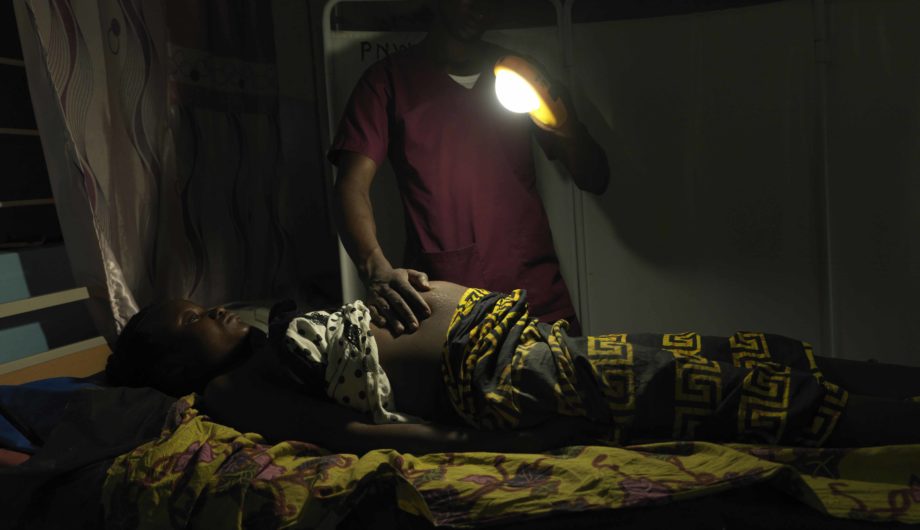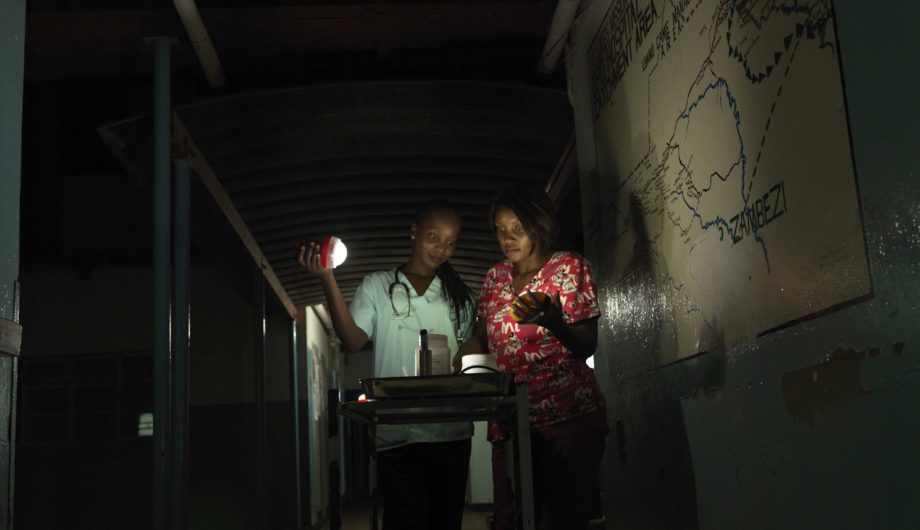My name is Sister Martha. I grew up in Zambia and always dreamt about doing a job where I could be amongst people. When I finally started working at St. Luke’s Hospital 16 years ago, my dream came true – I was around many people every day. But it was tough. There was no electricity.
St. Luke’s Hospital is located very remotely, about 200 kilometres from the capital city, Lusaka.
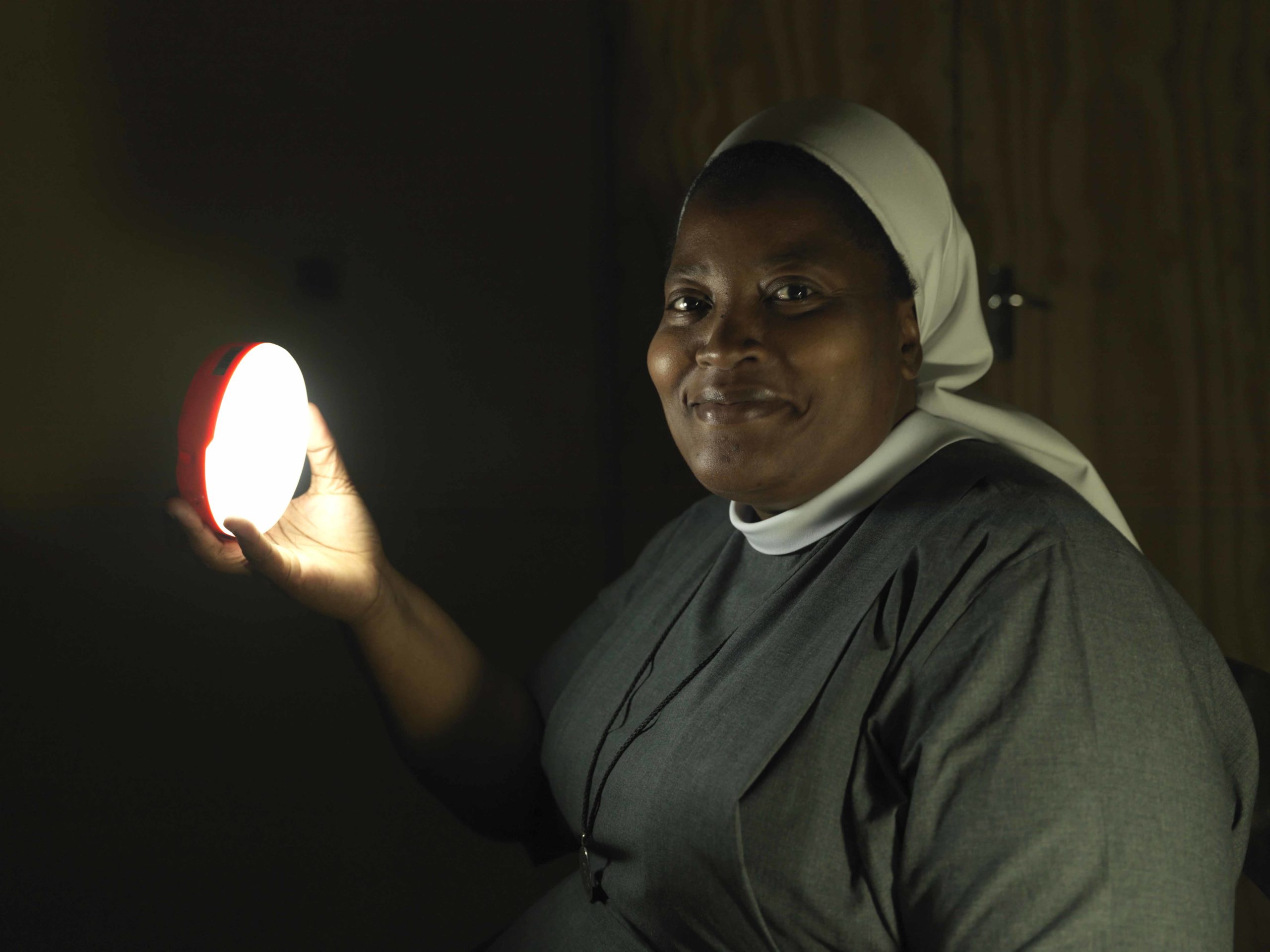
Portrait of Sister Martha at St. Lukes Hospital.
I had grown up without access to electricity. As a child, we were relying on toxic kerosene lamps for light. But at the hospital, the lack of light made it nearly impossible to treat our patients during the night.
Hospitals are places of endless action and bustle, teeming with movement and always awake. Imagine this in the dark. We could sometimes rely on a generator, but often there was no fuel. This meant treating emergency cases in the dark. Picture medical staff working evening rounds using candles to perform examinations. Expectant mothers arrive with their own candle so they don’t have to give birth in the pitch black.
My colleagues are committed, trained health professionals. But too often, the darkness takes a life unnecessarily because we’re not able to do our job properly.
Then one day, seven years ago, solar light arrived at St. Luke’s Hospital. I clearly remember the first few days. There was something curious about the way doctors and nurses attended their patients. With light, they were able to trust their skills. With light, they were treating patients safely. It was a relief, a big relief.
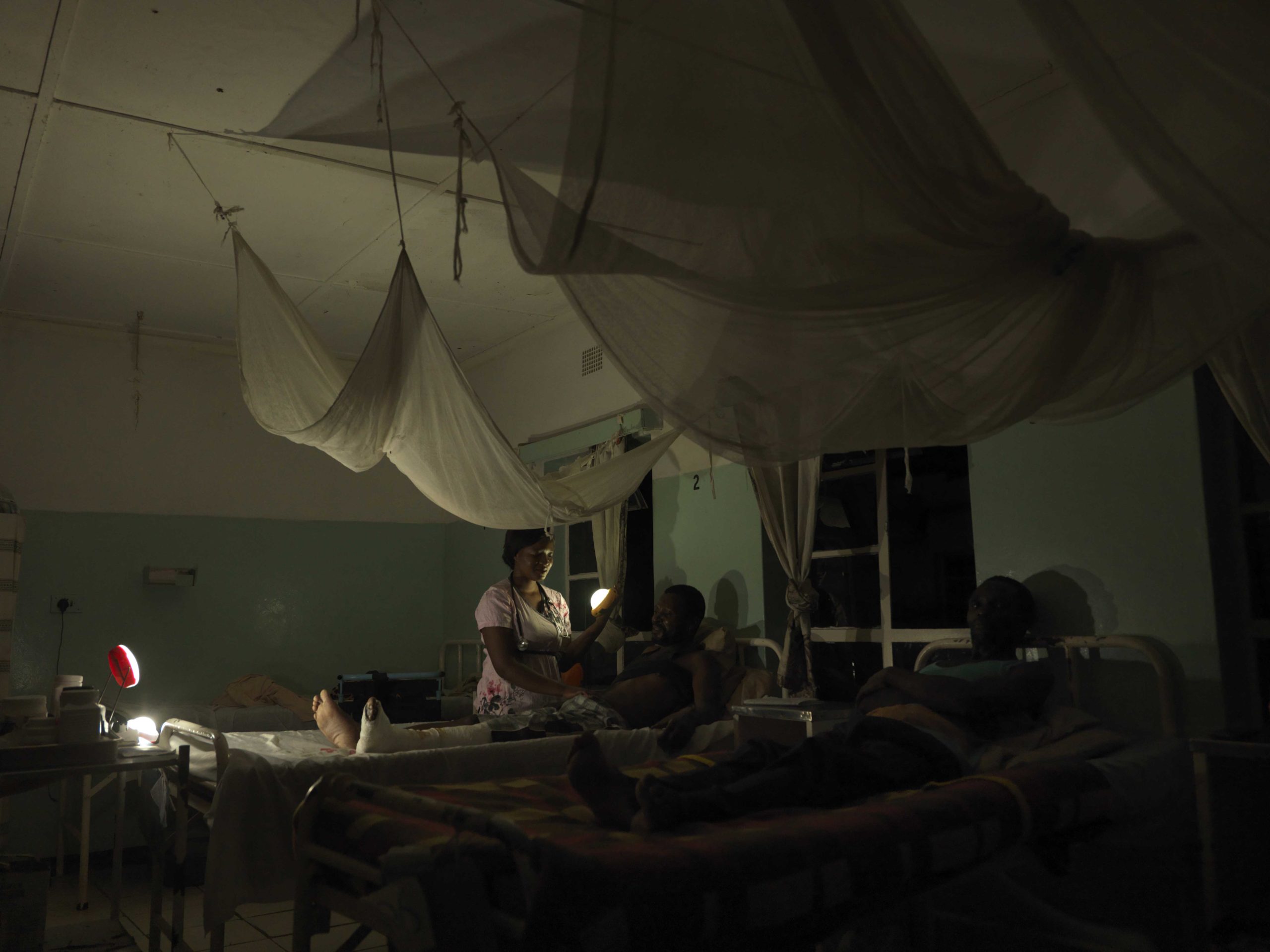
Nurse Sharon Bwalya monitors patient Sosten Mpudu after a lorry accident.
My colleagues across the country are not so fortunate. The majority of rural health clinics in sub-Saharan Africa lack access to electricity. With the additional challenges of Covid-19, this has shown the time for action is now. SolarAid is committed to ensuring that no health clinic is left in the dark by 2030. But they cannot do it alone.
With your help, every health professional in Zambia will be able to work safely at night.
Thank you,
Sister Martha

